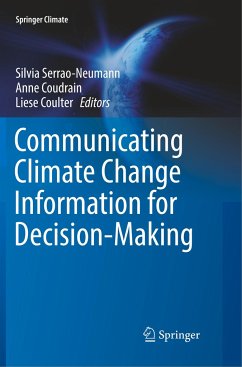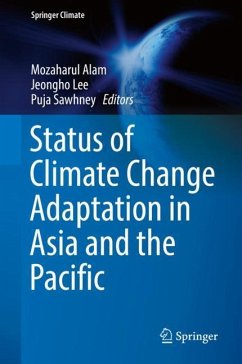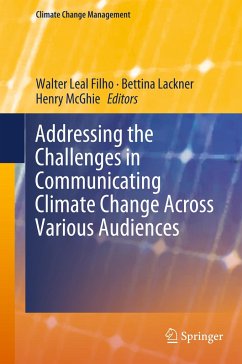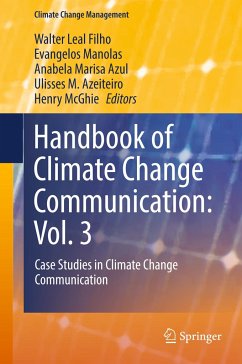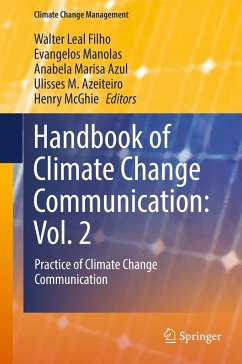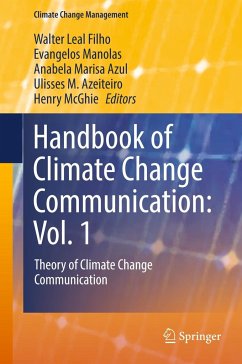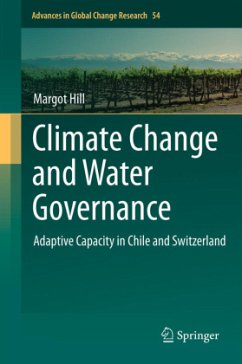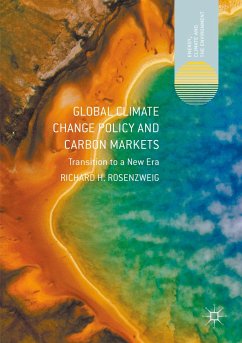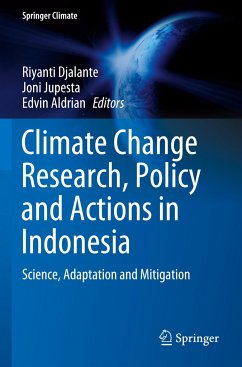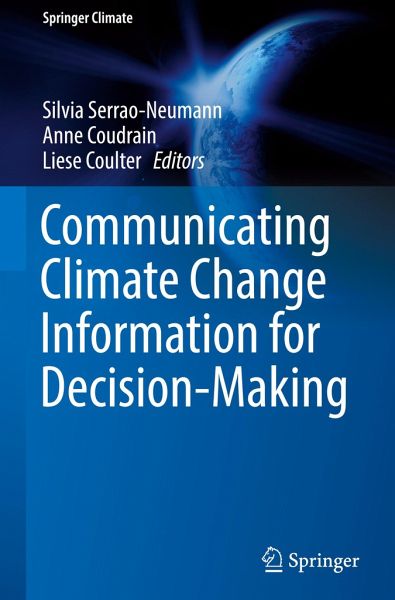
Communicating Climate Change Information for Decision-Making

PAYBACK Punkte
46 °P sammeln!
This book provides important insight on a range of issues focused on three themes; what new climate change information is being developed, how that knowledge is communicated and how it can be usefully applied across international, regional and local scales. There is increasing international investment and interest to develop and communicate updated climate change information to promote effective action. As change accelerates and planetary boundaries are crossed this information becomes particularly relevant to guide decisions and support both proactive adaptation and mitigation strategies. Dev...
This book provides important insight on a range of issues focused on three themes; what new climate change information is being developed, how that knowledge is communicated and how it can be usefully applied across international, regional and local scales. There is increasing international investment and interest to develop and communicate updated climate change information to promote effective action. As change accelerates and planetary boundaries are crossed this information becomes particularly relevant to guide decisions and support both proactive adaptation and mitigation strategies. Developing new information addresses innovations in producing interdisciplinary climate change knowledge and overcoming issues of data quality, access and availability. This book examines effective information systems to guide decision-making for immediate and future action. Cases studies in developed and developing countries illustrate how climate change information promotes immediate and future actions across a range of sectors.



